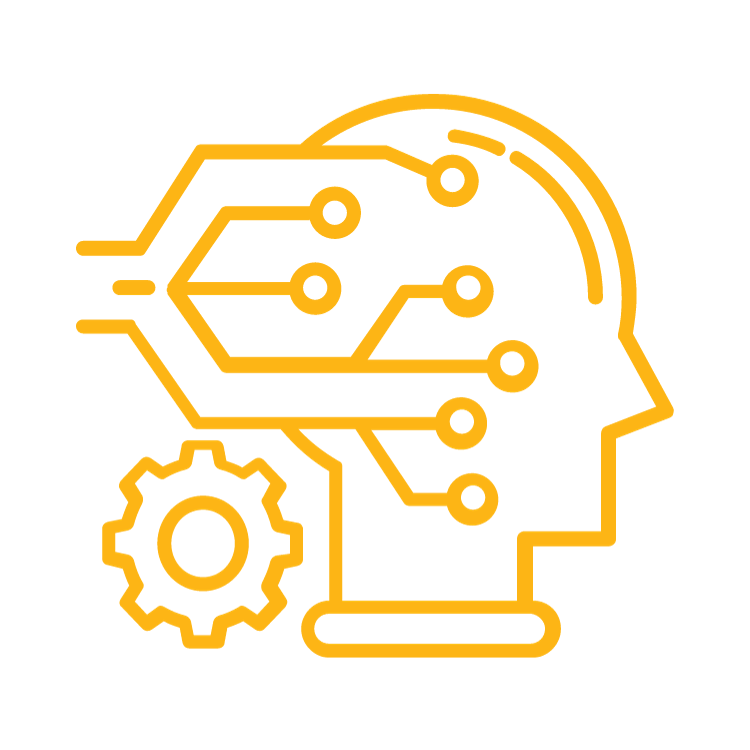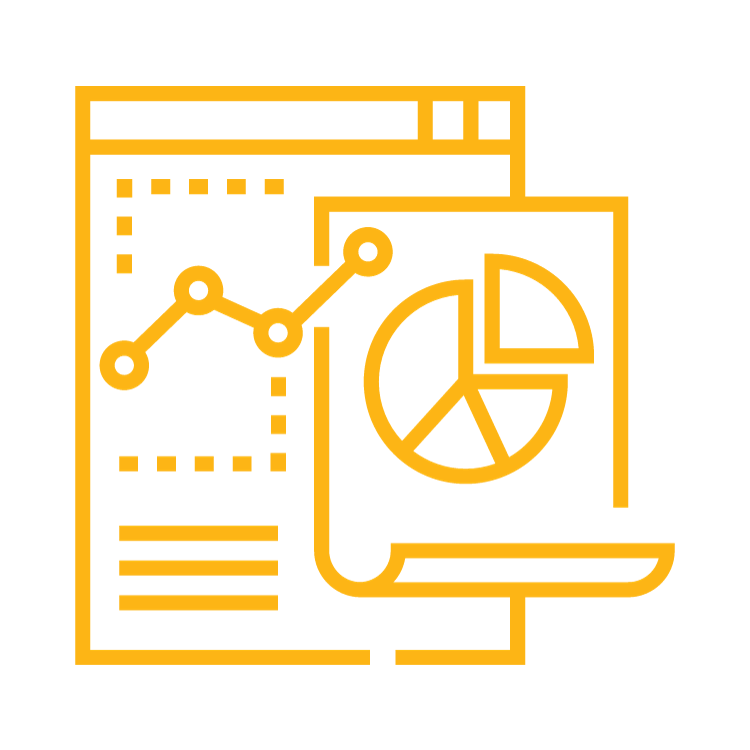Cutting-Edge Curriculum
Transforming professionals into data-driven decision makers
At Carnegie Mellon University, we believe that anyone can harness the power of data - from the seasoned programmer in financial services to the non-technical manager in HR. To transform professionals into data-driven decision makers, our faculty have designed the coursework for this certificate with evidence-based pedagogical practices in mind.
These practices stem from the research conducted in CMU’s world-renowned Statistics Pedagogy Lab Group, a group that seeks to modernize the statistics curriculum and spearhead the development of pedagogical tools and practices that benefit students from all backgrounds.
Curriculum Overview
The online Graduate Certificate in Foundations of Data Science includes five graduate-level, credit-bearing courses taught by expert CMU faculty and features the following course progression:
For Summer 2026 Start:
|
Semester |
Summer 2026 |
Fall 2026 |
Spring 2027 |
|---|---|---|---|
| Course |
Introduction to Data Science Computing Workflows Telling Impactful Stories with Data Visualization |
Probability & Statistics for Data Science Gaining Insights Through Statistical Modeling |
Applications of Real-World Data Science: A Capstone Experience |
Each course will appear on your Carnegie Mellon transcript with the grade earned. To earn the certificate, you must successfully complete all courses in the program. If you are only interested in one course, however, you may complete that course only and it will show on your transcript with the grade earned.
Course Descriptions:
Probability & Statistics for Data Science
Course Number: 36-640
Units: 6 units
Learn how to understand and correctly apply fundamental terminology and techniques in future data analysis situations. Explore the theoretical aspects of probability and statistical inference, including basic probability, random variables, univariate and bivariate probability distributions, statistics, likelihood, point and interval estimation, hypothesis testing, and the frameworks underlying linear and logistic regression and Naive Bayes. Mathematical details are supplemented with computer-based examples and exercises (e.g. visualization and simulation).
Gaining Insights through Statistical Modeling and Machine Learning
Course Number: 36-641
Units: 6 units
Prerequisite: Probability & Statistics for Data Science
Designed to teach you how to approach and analyze data, topics include data input/output, processing, exploratory analysis, clustering, common regression and classification models (including those of classical statistics and of machine learning), and experimental design. Practice using these methods on real-world data and subsequently apply them when analyzing data in the program's Data Science Capstone course.
Telling Impactful Stories with Data Visualization
Course Number: 36-642
Units: 6 units
Explore the most common forms of graphical displays and their (mis)uses. Learn how to create well-designed graphs and understand them from a statistical perspective, while working with increasingly common, complex data structures (temporal, spatial, and text data). All assignments will be completed in R. Throughout the course, communication skills will play an important role.
Introduction to Data Science Computing Workflows
Course Number: 36-643
Units: 6 units
Learn how to apply computational thinking to data processing and analysis problems through the R programming language. Topics include defining and manipulating vectors, lists, and data frames; processing strings and applying regular expressions in string searches; input and output data; writing functions; applying numerical methods such as integration and optimization; working with data-and-time-based data; and applying unit testing.
Applications of Real-World Data Science: A Capstone Experience
Course Number: 36-644
Units: 6 units
Prerequisites: The first four courses must be completed prior to taking the Capstone course.
In the capstone course, work with real-world data to apply the skills and knowledge acquired throughout the program. Supported by subject matter experts, you will have the opportunity to practice synthesizing and communicating results in a clear and concise manner.
Meet Our World-Class Faculty
 Dr. Peter Freeman
Dr. Peter Freeman
Education: Ph.D., University of Chicago
Research Areas: Astrostatistics, Statistics Pedagogy, Statistics for Physical Sciences
 Dr. Ron Yurko
Dr. Ron Yurko
Education: Ph.D., Carnegie Mellon University
Research Areas: Sports Analytics, Statistical Genetics, Selective Inference
 Dr. Alex Reinhart
Dr. Alex Reinhart
Education: Ph.D., Carnegie Mellon University
Research Areas: Statistical Pedagogy & Educational Research, Natural Language Processing & Large Language Models
 Dr. Alex Reinhart
Dr. Alex Reinhart
Education: Ph.D., Carnegie Mellon University
Research Areas: Statistical Pedagogy & Educational Research, Natural Language Processing & Large Language Models
 Julia Walchessen
Julia Walchessen
Evergreen Postdoctoral Researcher - Special Faculty
Research Areas: STAMPS, Statistical Machine Learning
The Building Blocks of Our Curriculum

Spiral Learning
Spiral learning is an evidence-based pedagogical practice that helps students develop a deep understanding of data science in a short period of time. This approach emphasizes the importance of progressive learning instead of immediate proficiency in core concepts. Throughout the curriculum, our professors revisit or ‘spiral back’ to key topics continuously, each time encouraging a deeper understanding of the material. By repeatedly discussing topics in greater detail, you will start to build mastery in fundamental data science skills that you can apply in the future.

Experiential Learning
The Graduate Certificate in Foundations of Data Science is anything but traditional. Here, you will learn how to think like a data scientist by immersing yourself in a rich environment filled with hands-on experiences. Throughout the curriculum, you will practice statistical analysis techniques on real-world datasets; use the R programming language to create statistical graphs; and learn how to communicate your findings to various stakeholders. In the capstone course, you will work with real world data under the guidance of subject matter experts to apply the skills you have gained throughout the program.

Real-World Context
While it’s important to develop technical skills in statistical analysis, data visualization and computational thinking, we also believe in the power of application. How can data science be used to solve real societal and organizational issues? In our program, students from all industries—whether it be finance, marketing, healthcare and beyond—are empowered to approach problems with a confident, data-centric mindset. With fundamental knowledge in data science, you’ll have the skills to apply data in meaningful ways for your team and organization.
